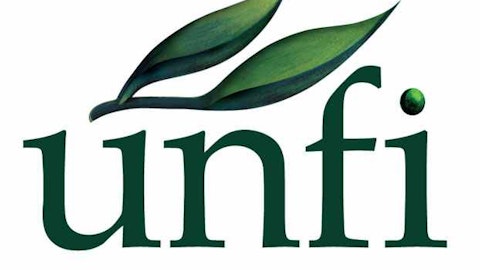Similar to its larger, more well-known peer, The Fresh Market Inc (NASDAQ:TFM) has traded at lofty valuations, riding the wave of the organic-food boom of the past several years in the United States. Though it’s a well-run company with attractive growth prospects, the grocer suffers from market hysteria. This became more apparent over the last 12 months as slowed growth frightened investors paying nearly 30 times earnings. Now, it looks as if all is forgotten as the company posted an impressive earnings release. How does the company’s valuation measure up today? Let’s take a closer look at earnings to find some clues.
Earnings recap
For the first quarter of 2013, The Fresh Market Inc (NASDAQ:TFM) brought in top-line revenue of $366.6 million — a near 13% increase from the prior year’s quarter, yet short of analyst estimates (approximately $373 million). The reason for the big gain was maybe the best reason for a grocery store: big comparable-sales growth. Moving down the income statement, gross profit improved a staggering 14.8% to $129.3 million, driven (again) by same-store sales growth.
On the bottom line, the company beat the Street by bringing in $0.46 per share — a 14.6% gain over the prior year and $0.02 higher than consensus estimates. Margins improved slightly across the board, based on favorable accounting measures and merchandise margins.
Same-store sales grew by 3%, coming off the back of a 1.9% gain in the prior-year’s quarter.
All in all, it was a strong quarter, and if you step into a The Fresh Market Inc (NASDAQ:TFM), you can tell these guys have a great formula. It’s homier than Whole Foods Market, Inc. (NASDAQ:WFM), with a slightly lower price point on some items. Unfortunately, though, a great company is not always a great stock. Is The Fresh Market still too hot to touch?
Looking down the road
Encouragingly, The Fresh Market Inc (NASDAQ:TFM)’s management bumped guidance to reflect traffic increases at the stores. Same-store sales growth is now projected at 2.5% to 4.5%. Investors can expect earnings to grow more substantially in the back half of the year, yet EPS guidance remains unchanged (and represents about 19% growth over the prior year). The company plans to open up to 22 new stores throughout the year, and with a long growth runway ahead, as well.
Again, there is no doubt this is an A-plus operation, but what are we paying for it?
The stock currently trades at 26 times forward one-year earnings. In the mind of Peter Lynch, that means (assuming no more growth thereafter — obviously not the case) your investment will take 26 years to pay back. Now, of course The Fresh Market Inc (NASDAQ:TFM) will keep growing, but this should give investors some context. There are, without doubt, investments with stronger economics than this one, when using the Lynch P/E.
The Fresh Market isn’t alone in its premium pricing. Whole Foods Market, Inc. (NASDAQ:WFM) trades at 30 times forward earnings, and arguably doesn’t have as large a growth platform (by store count) as The Fresh Market. It is, though, the gorilla in the space.
For some grocery store industry context, Safeway Inc. (NYSE:SWY) trades at under 10 times earnings and is in a mature, slow-moving state. The company is in the midst of renovating stores in hopes of finding some growth. While not nearly as sexy an investment (and riddled with debt), Safeway Inc. (NYSE:SWY) is priced to move off the shelves.
This author tends to be a broken record when talking about hot stocks, but I feel The Fresh Market Inc (NASDAQ:TFM) is simply too expensive to own, even after its several month sell-off. That said, if this business ever goes on sale, I am backing up the truck.
The article The Fresh Market: Great Business, Premium Price originally appeared on Fool.com and is written by Michael Lewis.
Fool contributor Michael Lewis has no position in any stocks mentioned. The Motley Fool recommends The Fresh Market and Whole Foods Market (NASDAQ:WFM). The Motley Fool owns shares of Whole Foods Market.
Copyright © 1995 – 2013 The Motley Fool, LLC. All rights reserved. The Motley Fool has a disclosure policy.




